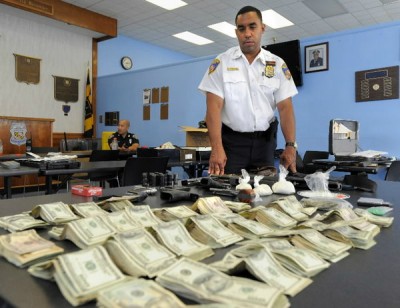My point is, at least he was arrested and charged...as opposed to other seizures where there no arrest occurred and no charges were filed yet the money/assets are still seized. He was, on some level, violating the law which led to the seizure. (More than 20 grams of pot is felony possession in FL. He had 300+ on him).
Just saying he's not the shining example of the "innocent citizen" falling afoul of bad forfeiture laws we've often heard about.
I think the forfeiture/seizure laws are wrong and I'm pretty sure there are better examples out there than a pothead pro football player to help the cause.
Just saying he's not the shining example of the "innocent citizen" falling afoul of bad forfeiture laws we've often heard about.
I think the forfeiture/seizure laws are wrong and I'm pretty sure there are better examples out there than a pothead pro football player to help the cause.











